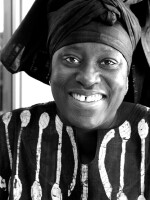MADELEINE BRAND, host:
From NPR News, it's DAY TO DAY.
We turn now to an historic election in Africa. Congo held its first multi-party presidential vote in 40 years last month. This week, the incumbent, Joseph Kabila, was declared the winner. But the challenger, Vice President Jean-Pierre Bemba, is not going quietly. He promises to contest the results, peacefully. Although as a former warlord, he has a private army.
NPR's Ofeibea Quist-Arcton is in Congo's capital, Kinshasa. Hi Ofeibea.
OFEIBEA QUIST-ARCTON: Hi.
BRAND: Now, according to official results, Kabila won overwhelmingly, 58 to 42 percent. So does Bemba actually have a case? Was there fraud?
QUIST-ARCTON: Fraud. That is the big question. Now, most of those who observed the polls said they were peaceful and orderly. But it's been for the past week that Jean-Pierre Bemba's camp has been alleging systematic cheating in the vote count, in the compilation of the votes.
And that, of course, culminated in him announcing that he has rejected the results and that he's going to seek legal redress. But it's very difficult to know whether there was fraud, and it'll be up to the Supreme Court to either endorse or reject the results that appointed Joseph Kabila as an elected leader rather than as an unelected president.
BRAND: Well, let's get a little background, if you would. Tell us a bit about the two men, Kabila and Bemba.
QUIST-ARCTON: Many similarities and many differences. First, physically. Jean-Pierre Bemba is a huge man. He's hulking, well over six foot. Joseph Kabila is a small, neat man. He seems a little shy, a little quiet, a little timid. Both of them, though, have been rebel leaders - Jean Pierre Bemba of his own rebel group that was opposed to Joseph Kabils's group - and both have private security forces here in the capital, Kinshasa, who have clashed after the results of the first round in August and again on Saturday. So that's a fear for many Congolese, that if these elections aren't sorted out peacefully, there could be a return to arms and a return to conflict.
BRAND: And how likely is that? As noted earlier, Bemba has his own private army and he was a warlord.
QUIST-ARCTON: Both have private armies in this city. But we must also remember that Congo is home to the largest United Nations peacekeeping force in the world - 17,000 peacekeepers and in recent months the addition of about 4,000 European peacekeepers.
Since the trouble, they've beefed up security here in Kinshasa and they say they are ready for all eventualities. But you've got lots of young men, street boys and others, who have no jobs, no prospects, and they feel no future unless Jean-Pierre Bemba became president. And of course, that hasn't happened.
BRAND: Well, once this is settled - hopefully through legal and peaceful means - what challenges face the new president?
QUIST-ARCTON: Phenomenal challenges. Congo is at the heart of Africa. It is a hugely rich country, potentially. It has all the minerals you could think of, from coltan, the one that's used in manufacturing probably your cell phone, Madeleine. And yet it is a hugely poor nation. Most Congolese live on a pittance.
And this is a country that's the size of Western Europe - give or take - and yet it only has 300 miles of paved roads. So everything is here to make Congo a rich country. It's how the new leaders deal with it.
And because of the rich pickings and the potential, this has been a country that's been pillaged not only in the past by dictatorship and during years of rebellion and war, but also from outsiders, people from the region and people from further afield.
BRAND: NPR's Ofeibea Quist-Arcton in Kinshasa. Thank you very much for joining us.
QUIST-ARCTON: It's a pleasure. Transcript provided by NPR, Copyright NPR.







